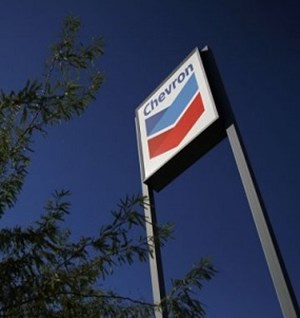OTC 2024: Chevron pushes the envelope with “industry-first” Anchor HPHT project in U.S. Gulf of Mexico
(WO) – Day 1 of the 2024 Offshore Technology Conference (OTC) kicked off on Monday, May 6, in Houston, Texas. Themed “Leading the global energy evolution,” the event sees tens of thousands of oil and gas professionals from around the world gathered to explore the newest innovations being undertaken by the offshore industry.
A technical session titled “HPHT challenges and advancements” discussed technological innovations and qualifications of high-pressure, high-temperature (HPHT) equipment and systems designs, verification and validation with expert speakers from Chevron, OneSubsea, 2 Offshore, Beacon Energy and more.
Chevron’s Anchor project: An “industry first” HPHT effort. Most notably, Khiem Nguyen, Subsea Wellhead SME, Chevron U.S.A. Inc., spoke about Chevron’s Anchor project, the oil and gas industry’s first deepwater ultra-high-temperature development to achieve a final investment decision.
Located roughly 140 mi (225 km) off the coast of Louisianna in the U.S. Gulf of Mexico, Nguyen continuously stressed the technical challenge and scale associated with the Anchor project.
Anchor features a unique wellhead system that has undergone rigorous testing and qualifications. With innovative technologies, Anchor will be capable of handling pressures of 20,000 psi and temperatures over 350o F.
Fatigue-resistant for a harsh, deepwater environment. Nguyen emphasized the project’s difficult nature, taking place in a harsh, deepwater environment. As such, Anchor’s design is fatigue-resistant, and its wellhead system has undergone full-scale testing.
Anchor’s design is based off proven, field-tested installations, Nguyen said. In fact, Chevron’s 20,000-psi wellhead design isn’t much different than the standard 15,000-psi version.
Chevron will be using a wellhead system from service provider Drill-Quip that has a 2-million-lb lockdown capacity and field-proven seal design. Anchor’s wellhead design is intended to lower emissions, eliminate lockdown services, extend service life in extreme HPHT conditions, and more.
So far, Chevron has installed six wellheads at Anchor: six HPHT wells and one HT well. Ultimately, the goal is to enable access to other high-pressure resources across the Gulf of Mexico.
Background. The Anchor discovery well was drilled in 2014, with two appraisal wells following in 2015 and 2016, respectively. In 2018, the project received wellhead technology funding, with Chevron and partners reaching a final investment decision in 2019. The project’s first development well was drilled in 2022, with Chevron eyeing first oil production later this year.
According to Chevron, the planned facility has a design capacity of 75,000 bpd of crude oil and 28 MMcfgd. The total, potentially recoverable oil-equivalent resources for Anchor are estimated to exceed 440 MMbbl.



